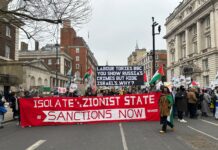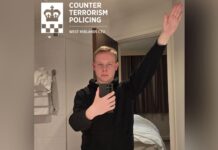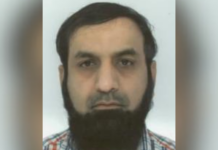Newly-elected Prime Minister David Cameron is to set out a string of new powers to tackle radicalisation in a counter-extremism bill which will be in the Queen’s Speech on 27 May.
According to the BBC, the bill will include new immigration rules, powers to close down premises used by “extremists” and “extremism disruption orders”.
The proposals were first set out by Home Secretary Theresa May before the general election. But the Conservatives were unable to secure the backing of their then Liberal Democrat coalition partners for the measures.
The measures are also expected to introduce banning orders for “extremist organisations” who use hate speech in public places, but whose activities fall short of it being proscribed as a terror group.
The banning orders and extremism disruption orders will work in a similar way to ASBOs, with police having to go to the courts to obtain them, a Downing Street spokesman said.
The home secretary is also looking at the possibility of tightening asylum rules for those who express extremist views, he added.

Extremism is defined in the government’s prevent strategy as “vocal or active opposition to fundamental British values including democracy, the rule of law, individual liberty, mutual respect and tolerance of different faiths and beliefs. In addition, calling for the deaths of members of the armed forces”.
Subscribe to our newsletter and stay updated on the latest news and updates from around the Muslim world!
According to details given by Mrs May at last year’s Conservative Party conference, such orders would apply if ministers “reasonably believe” a group intended to incite religious or racial hatred, to threaten democracy, or if there was a pressing need to protect the public from harm, either from a risk of violence, public disorder, harassment or other criminal acts.
Under the government’s plans, the Charity Commission will be given more power to “root out charities who misappropriate funds towards extremism and terrorism”, and broadcast regulator Ofcom will be able to take action against channels broadcasting extremist content.
The terror threat level was raised from substantial to severe last August in response to the conflict in Syria and Iraq.
Ministers responded by introducing new orders that can block British fighters from returning to the UK and give police the power to seize the passports of people suspected of plotting to join the fighting abroad.
Muslim community reaction
Advocacy group CAGE has in the past fiercely opposed the proposals.
A statement on their website says: “The Counter-Terrorism and Security Bill 2014 presents itself as being the single most intrusive piece of legislation in the lives of communities across the UK.
“By placing a requirement on public sector services to police those under their duty of care, an alternative system of criminalisation is being established. The public sector must respond to these developments, otherwise they risk potentially alienating from their services many who will become fearful of being misunderstood.”
Prominent Muslims have long argued that taking away the freedoms and rights of a minority also allows for government to take away the rights of the rest of the population.

They’ve also accused the government of pandering to “populist minority scapegoating,” deflecting attention from the bad state of the economy and public services.
Meanwhile the Muslim Council of Britain (MCB) also struck a note of caution.
The MCB’s Dr Shuja Shafi said: “Any initiative to keep our country safe is welcomed. The scourge of terrorism affects us all. We all must challenge acts of terrorism and ideas and the environment in which it thrives.
“The Muslim Council of Britain, and indeed the Muslim community as a whole, has consistently and vocally challenged and denounced acts of terrorism and those who incite, encourage or support acts of terrorism, and will continue to do so in the best interests of our country.
“Our best defence is to hold onto our values firmly – values of freedom, justice, fairness, rule of law, respect and tolerance. Terrorists seek to divide our society and undermine our values and therefore our action must not give them indirect victory by curtailing our rights, alienating communities and giving grounds to ideologically driven vested interests.
“Government proposals, as reported in the media, run the risks of seriously limiting free speech, impeding into media freedom and may further alienate a wide section of our nation.
“We call on our government to tread carefully and not to rush into bringing in yet more legislation without proper debate, engaging all stakeholders, building consensus and unity between communities. That, in our view, is in the interest of our national security and in keeping with our fine traditions.”




















